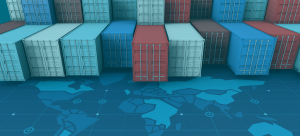
VAT is a consumption tax applied at each stage of a supply chain, and it is crucial for businesses who engage in cross border trading to have a good understanding of how import and export VAT is calculated. The rules of VAT change between domestic and international transactions and it is essential to remain compliant, avoid any costly penalties, and maintain a seamless supply chain.
Why Import & Export VAT is Important
For imports, VAT is often charged at the point goods enter the country. Importers must be aware of the VAT regulations and timeframes expected to pay any charges as failure to comply could result in customs delays and fines.
For exports, it is vital to have good knowledge of the rules of the countries you are exporting to, as many offer a zero-rated VAT rate provided the correct documentation supplements the goods.
-
Having the correct knowledge keeps your business compliant with VAT laws and assists with any audits, reducing the risk of incorrect VAT declarations and penalties.
-
Your business can benefit from understanding and managing your own VAT liabilities, streamlining your processes, and improving profitability.
-
Accurate and timely VAT handling reduces customs delays for more efficient procedures.
Understanding VAT on imports and exports can be challenging.
Why not join us on an expert-led webinar on Thursday 10th of July hosted by Scrutton Bland?
For our members only, this informative 45-minute webinar explores imports and exports, providing clarity on how goods moving into and outside the UK are treated with regards to VAT.
Attendees will gain a clear understanding of how to account for VAT and stay compliant with UK and non-UK legislation as well as the chance to ask questions in a Q&A session.
We will cover:
- VAT on Imports
- VAT on Exports
- Documentary Requirements
- VAT Accounting and Compliance
- Triangulation
Date: Thursday 10 July 10.00am - 11.00am
Platform: Zoom
Cost: Members Only - FREE





